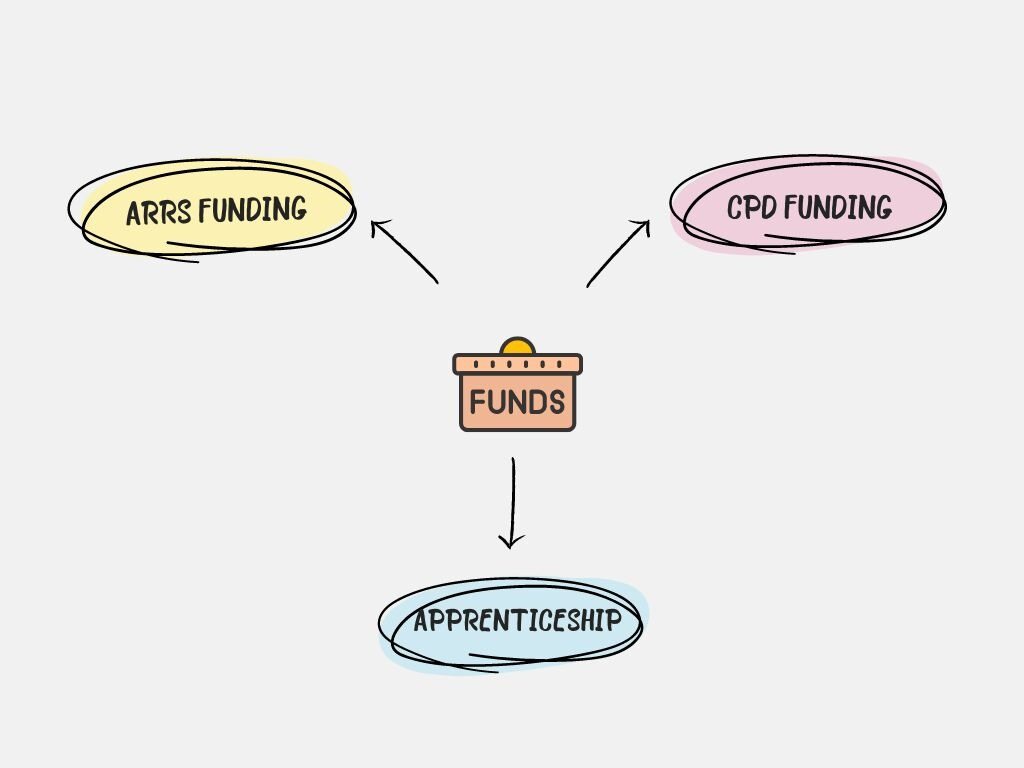Overview
The nursing associate is a bridging role between health and care assistants and graduate registered nurses. Nursing associates are new members of the care team, who are trained to foundation degree level. Created to deliver hands-on, person-centred care as part of nursing teams. Nursing Associates work in many different health and care settings, including hospitals, care homes, learning disabilities, general practice and in the community.
The role was introduced in response to the Shape of Caring Review (2015), to help build the capacity of the nursing workforce and the delivery of high-quality care. It will be a vital part of the wider health and care team and aims to:
- Support the career progression of healthcare assistants
- Enable nurses to focus on more complex clinical work
- Increase the supply of nurses by providing a progression route into graduate-level nursing.
Like with nurses and other healthcare professionals, nursing associates can expand their knowledge and skills with the right training and governance. The intention is for nursing associates to support, not substitute, registered nurses.
Scope of Practice
Role Responsibilities
A Nursing Associate can perform more complex skills than Healthcare Assistants but not of that of a Registered Nurse. While Nursing Associates will contribute to most aspects of care, including delivery and monitoring, Registered Nurses will take the lead on assessment, planning and evaluation.
Nursing Associate duties may include:
- undertaking clinical tasks including cannulation, venepuncture and ECGs
- performing and recording clinical observations such as blood pressure, temperature, respirations and pulse
- Adult and Child immunisations
- Assisting with meeting Quality and Outcomes Framework (QOF) targets
- Support the management of Long-Term Conditions
- discussing and sharing information with registered nurses on a patients’ condition, behaviour, activity and responses
- ensuring the privacy, dignity and safety of individuals is maintained at all times
- recognising issues relating to safeguarding vulnerable children and adults
The Nursing and Midwifery Council (NMC) have published standards of proficiency for nursing associates. This document represents the standards of knowledge and skills that a nursing associate will need to meet in order to be considered by the NMC as capable of safe and effective nursing associate practice. These standards have been designed to apply across all health and care settings
Entry Requirements
- To become a registered nursing associate with the Nursing and Midwifery Council (NMC), individuals must pass a foundation degree awarded by an NMC-approved provider, typically taken over two years.
- Registered with the NMC
Training and Development
Mandatory
Please see above ‘Entry requirements’
Standard (on entry to Primary Care)
The NMC approved a set of standards of proficiency for nursing associates in 2018. They set out the minimum standards of what nursing associates need to know and can do when they join the NMC register. The standards apply across all health and care settings.
Additional Training opportunities
Qualified nursing associates can also go on to train as a registered nurse by putting their training towards a shortened nursing degree or registered nurse degree apprenticeship (RNDA).
Your nursing associate training may shorten a registered nurse degree apprenticeship to 2 years.
This option can be undertaken via a self-funded or apprenticeship option.
To find out more about apprenticeships, including how to apply, please see information on this Apprenticeship page and also do reach out to SNEE training Hub where support and advice can be offered with our dedicated team.
Preceptorship
Fellowships/preceptorships are funded, short-term opportunities, that can last from a few weeks to a few years. They can be focused on professional, academic and/or personal development.
A preceptorship is a period of structured transition to guide and support practitioners in their new place of work. Preceptorship offers the structured support needed to transition knowledge into everyday practice. Successful preceptorship enables the preceptee confidence to develop as an independent professional and to refine their skills, values and behaviours.
SNEE training hub are offering 12-month preceptorship programme for Nurses and Nursing Associates new to general practice.
For further information on the SNEE training hub Nurse preceptorship programme please see our Fellowships/Preceptorships webpage.
Supervision Requirements
Supervision is a process of professional learning and development that enables individuals to reflect on and develop their knowledge, skills and competence, through regular support from another professional.
Supervision can have different forms and functions and a number of terms are used to describe these. For this guidance we use the below terms and define them as follows:
- Clinic/practice supervision: day-to-day support provided by a named/duty senior/more experienced clinician for issues arising in the practice.
- Clinical/professional supervision: regular support from a named senior/experienced clinician/practitioner to promote high clinical standards and develop professional expertise.
- Educational supervision: supports learning and enables learners to achieve proficiency.
Nursing Associate Supervision
It is recommended that Nursing Associates have access to appropriate clinical supervision and an appropriate named individual in the PCN to provide support and advice on a day-to-day basis. This would typically be a registered nurse, advanced practitioner or other appropriate healthcare professional. Recommended minimum frequency of a 1-hour supervision meeting is monthly.
Supervision Guidance for primary care network multidisciplinary teams (NHSE, 2023)
Funding
AFC Band 4
100% of actual salary plus defined on costs covered via ARRS Scheme.
Training and development funding

Nursing Associates may be entitled to wider NHSE commissioned funding to support their training and development requirements. Please contact the training hub for more information on this.
Recruitment Information
Where a PCN employs or engages a Nursing Associate under the Additional Roles Reimbursement Scheme, the PCN must ensure that the Nursing Associate meets the ‘Minimum Role Requirements’ stipulated in Annex B of the Network DES
Please find various resources in this section to assist in the recruitment and embedding of the Nursing Associate role in General Practice.
Recruitment Resources
Additional Resources
Join Our Mailing List
Get the latest updates and news direct to your inbox.
